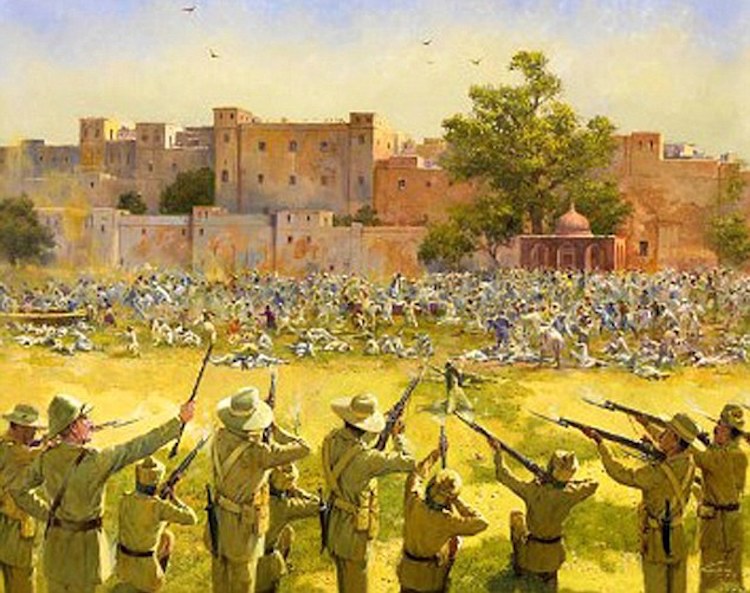By Janaka Perera
This report first appeared on LankaWeb on October 3, 2017, and is being re-published because it addresses an important issue which has been persistently highlighted by Shashi Tharoor, an eminent Indian politician, prolific writer and a former senior UN official. – The Editor
COLOMBO (IDN-INPS) – At a seminar on Foreign Policy and International Law held at the Organisation of Professional Associations (OPA) auditorium, Colombo on October 2, 2017, a member of the audience, Attorney Senaka Weeraratna, called for unity among Asian countries in claiming compensation from Western colonial powers which ravaged Third World nations including Sri Lanka (then Ceylon), during question time.
Weeraratna said: “The biggest proponents of Human Rights today are the very same countries that had decimated ancient civilizations in the two Americas (Aztec, Inca, Mayan and other Native American – the so-called Red Indian), Australia ( 40,000 year old Aboriginal civilization), Africa, Middle East, and Asia, within the last 500 years. There is mounting evidence of these crimes.”
He stressed that the West has been able to get away with these genocidal crimes because the cry for redress has been weak particularly in Asia whereas Africa and the Caribbean were far ahead.
He added: “They i.e. the Caribbean countries have set up Government machinery for this purpose. In India so far the demands for restitution has been confined to pure rhetoric. In Sri Lanka we are going in the opposite direction such as celebrating our country’s destruction at the hands of the foreigners. The British Tea Planters are projected as the new heroes without any reference to the plunder of the lands of the Kandyan Sinhalese by unjust ‘grab land’ laws (Wastelands Ordinance 1841), and who were made destitute without any compensation paid to them. The Kandyan Peasantry Commission Report gives a good account of the injustice meted out to the Kandyan peasantry by the British Raj.”
Likewise, Weeraratna pointed out that the Indentured Labour (now increasingly referred to as ‘reinvented slaves’) who were brought down from India in their thousands suffered heavily from malnourishment, lack of medical care, poor pay, harsh treatment etc. He said that the tea planters were brutal to both humans and animals, especially wild elephants, which they hunted down as game for pure pleasure. About 10,000 wild elephants were killed within a few decades by the British to clear the dense forests for tea cultivation. This is a forgotten holocaust of elephants.
“These negative aspects are all missing in the new narrative being constructed by interested parties including the local press to project colonial rule as benign and in turn convey the message that the Sinhalese are unfit to govern themselves. The story line that is emerging from Face Book exchanges is that the Sinhala Buddhists are the villains of our history, and whatever good that has been done on this land was due to foreign influence faithfully carried out by those who had embraced the religions of the West and transferred their allegiance from the local sovereign to the foreign sovereign.”
Weeraratna drew attention to the upcoming 200th anniversary of the British suppression of the independence struggle which began at Uva – Wellassa leading to genocide and crimes against humanity (1817-2017). “It will be an appropriate time to call for an apology, restitution and reparations,” he said.
Continuing, Senaka Weeraratna said former Indian diplomat Shashi Tharoor and several others are now making their voices heard in the international arena. Sri Lanka must not hesitate to join hands with them and the whole of Asia must unite to call for compensation and apology. An international inquiry on colonial crimes all over the world must precede such demands. International Conferences must be held on this issue.
“Asia will come of age only when we ask for accountability from those who have oppressed the people of Asia. The time for finger pointing in the reverse direction has come. Naming and shaming countries should not be allowed to be a monopoly of a few countries, who think that they have been mandated by heavens to perform that role. Defiance in the face of aggression in the past and present must be admired and encouraged. Decolonization of the mind is the next step forward in Asia’s path to true liberation.”
Weeraratna also suggested the holding of a public seminar prior to the 70th anniversary of Sri Lanka’s independence due in 2018 on the subject of ‘Who won freedom for Sri Lanka’.
“The foreign funded NGO sector must not be allowed to dominate this subject and rewrite the historical narrative to suit their sinister agenda,” he concluded.
Among those who addressed the gathering were Academic and former diplomat Dr. Dayan Jayatilleke, Admiral Sarath Weerasekera, Senior Journalist Mohan Samaranayake, Sri Lanka’s former Permanent Representative in the UN Dr. Palitha Kohona, Attorney Manohara de Silva and Major General Kamal Gunaratne. The moderator was Sri Lanka’s former Ambassador in Israel, Sarath Wijesinghe. [IDN-InDepthNews – 4 October 2017]
Related IDN article: https://indepthnews.colo.ba.be/index.php/the-world/asia-pacific/1397-the-unhrc-resolution-and-implications-for-sri-lanka
Photo: A painting of British soldiers shooting civilians in Amritsar on April 13, 1919. Credit: sabrangindia.in
IDN is flagship agency of the International Press Syndicate.
facebook.com/IDN.GoingDeeper – twitter.com/InDepthNews

